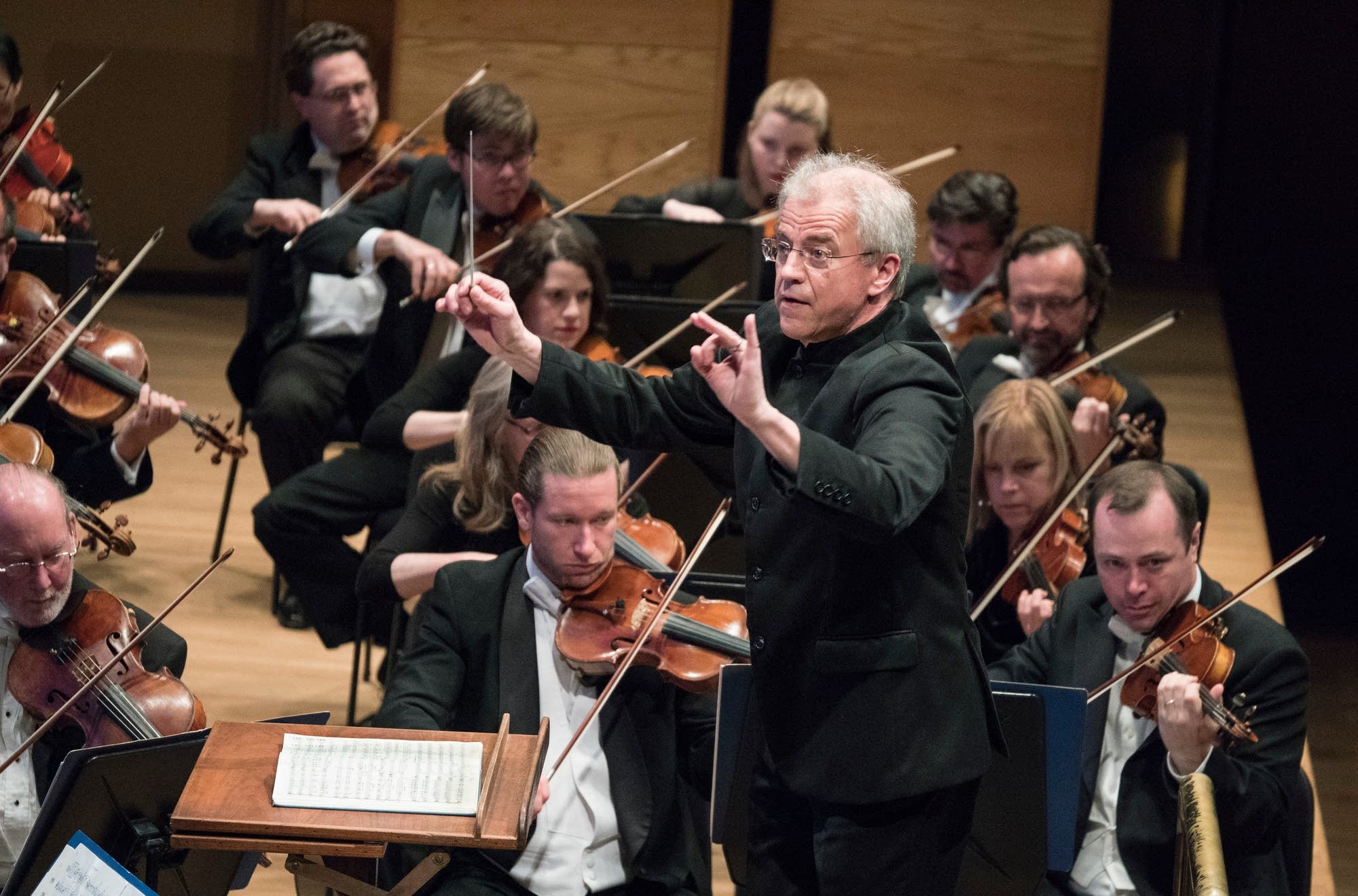Osmo Vänskä: Let players look after the orchestra
NewsIn a Minnesota farewell interview with Pamela Espeland, the music director reflects on the disastrous 15-month lockout of 2012-14, in which he was the first US music director openly to side with the players in a labour dispute.
One thing which is really important to me is that after the lockout, we were able to change our way to do administration and program planning. The Minnesota Model is people coming together and trying to do things together, listening to each other and not staying in their corners and having bad feelings about the other.
More and more, I believe that the orchestra is much better if the players are taking care of their own future. Music directors come and go. Board members come and go. But players stay and often hold their career in the same orchestra. We have many couples in the orchestra.
If musicians are allowed to take care of the future of the orchestra, then the spirit of the orchestra is better, and the orchestra is playing better, and the people are more committed to it. I like this idea of an institution which is collaborating and taking care.
The question is always “What is good for the Minnesota Orchestra today, tomorrow and next season?” If this question is Number 1 for everybody – for the players, for the administration, for the board – this orchestra is going to do great things in the future, too.
Read full interview here.






His recording of Mahler 6 wih Minnesota is one of the best!
https://basiaconfuoco.com/…/osmo-vanska-dirigeert…/
Bravo Osmo. Let your leadership, especially in hard times, be a lesson to those that need to learn it. Standing with the musicians is the only way.
I infer that he is talking about a more European model but its construct is inconsistent with American non-profit structure, which mandates independent Board oversight and tight avoidance of conflict of interest. The American system of non-profit governance is so ingrained legally and structurally that I can’t see how it can change that easily or quickly.
Having served on non-profit Boards, my opinion, especially with performing arts organizations like major orchestras, is that the European model of self-governance is more likely to be sustaining in the future. There will be a lot of political tension with unions, as they are accustomed to blaming “management” indifference and incompetence for business models (such as that of the Metropolitan Opera’s, plainly unsustainable well before Covid) that are challenging and difficult. Being wholly responsible for raising one’s own operating funds and for devising workable benefit and compensation plans will prove to be as difficult as it’s always been for boards run by volunteer community people.
Orpheus Chamber Orchestra.
Orpheus Chamber Orchestra. They even wrote a book on it.
Most musicians have no clue on how hard it is to be on the “management” side of things. They look at the top salaries of managers and wonder out loud why those positions get paid so well.
The fact is that the musicians need professional management so that they can do their jobs in the orchestras. The minute the musicians have to run the orchestra, is the minute the musical product will be compromised in some way.
And the bulk of the self governing work will fall on a handful of people who will either work to exhaustion or relish the political power that is gained by being the decision maker(s).
It can work. The London orchestras have been doing it for some time now but even they have to rely on professional management to do the much needed office work.
But be careful for what you want. You may get it in the end.
Osmo was not talking about dropping the Minnesota Orchestra board of directors. It still has a board and professional management and fund-raising. It is more of a power-sharing arrangement with the players where their joint interests are more aligned. The Saint Paul Chamber Orchestra also changed to something resembling this idea in 2004 but they dropped having a permanent music director in favor of a rotating group of 4-5 eminent Artistic Partners that usually conduct (presently including Jeremy Denk, Pekka Kuusisto, Richard Egarr, etc.) that serve for 3 years.
A self-governing orchestra? Now there’s an original idea!!
Right. The AFM will be all over this idea. All that time practicing and mastering instruments provides the exact skill set necessary to run an orchestra.
In this reimagined new world, if things don’t go as anticipated, will the musicians go on strike in protest of their own shortcomings or will they be forced to lock themselves out?
Good point. Look at how many orchestras that are abysmally run by ex musicians now.
That’s not actually what he says.
If you actually expect the headlines on this site to be an accurate indication of the content of the post, let alone the article linked to, then… you must be new here.
Déjà vu! Just this morning, my 7-year old son looked at me despairingly. “It’s a MINI iPad dad, not an iPad!” I must [actually] find time to [actually] guide him so he won’t [actually] become one of those tiresome people who nitpick and belittle, often [actually] for lack of self-confidence. And maybe I’ll also try not using the patronizing word “actually” so much.
Huh? Plenty of European orchestras are self-governing. They appoint senior managers who are accountable to the musicians rather than running the administration themselves. They usually have a small number of orchestra members who attend board meetings with the administrators.
As good a conductor as he is, and he’s very good, OSMO VÄNSKÄ is an even better human being. It comes through in the interview.
I think the Minnesota Orchestra, given what he said, should ask: do we even need a musical director? Or should we go in a new direction? They can do it.
Clever words.
He is right 100%!!!
Then there is Minnegeddon…